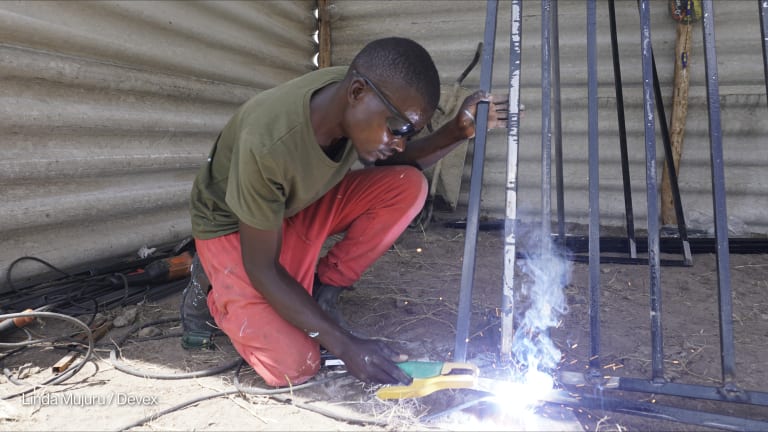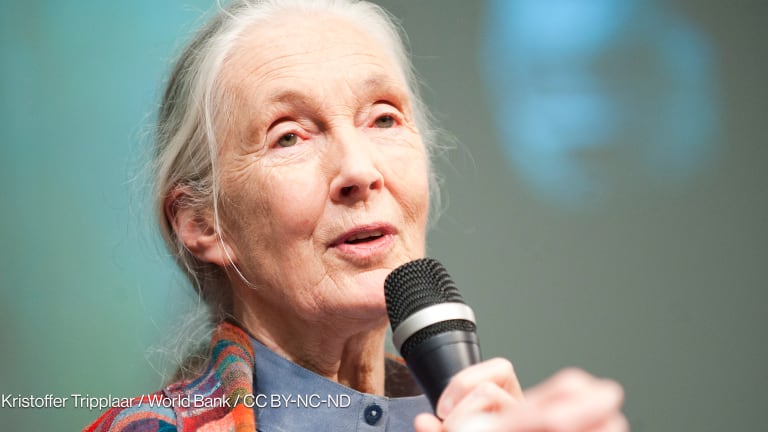
Mel Young was having beers with a friend in a Cape Town bar when he started thinking of football from a different perspective than that of a fan. After attending an international conference of street paper editors and owners, he was looking for new ideas to help homeless people around the world.
Eight years ago, Young never thought he could bring disadvantaged citizens from as many as 56 countries together to play in an international tournament. But that’s exactly what happened. The annual Homeless World Cup is now in its 7th year. This September, it will take place in Milan, Italy.
Young’s interest in homelessness started even earlier when, in 1993, he co-founded the Scottish version of the popular London street paper The Big Issue. Two years later, he co-founded the International Network of Street Papers, which held its 2001 annual conferences in South Africa’s legislative capital. The event was very helpful to participating journalists, editors and media owners, Young said, but homeless people did not participate.
“How could we get to a situation whereby we could involve homeless people?” Young said, recalling the evening when he first thought of an international football competition. “We talked about different ideas, then we came up with different barriers to making this work.
One of them was language. Then we thought there was an international language that’s called football, and people could participate.”
Two years later, 17 national teams played at the first Homeless World Cup in Graz, Austria. Participation grew considerably over the years until last December’s event in Melbourne, Australia.
Although Young’s team of six permanent staff works closely with local non-governmental organizations in all countries that send participants to the tournament, taking homeless people abroad has posed challenges.
“Many don’t even have their own birth certificates, they don’t even know how old they are,” Young said. “So we first have to find their own identity papers. Then we have to get them an internal and an external passport, then a visa to go into a new country. And we have to transport them. Many of them have never been on an airplane before.”
Young said that logistical and administrative problems were the only major difficulties encountered by the organizers of the event, as getting homeless people involved was relatively easy given the nature of the game.
“The beauty of the football is that it’s very simple to do: You just need a ball,” he said. “You don’t even need a place, you can play anywhere. And it can involve people at every level. They can be very good or very terrible. They can be of any age, male or female. And you can play two a side or 20 a side.”
The NGOs Young collaborates with all work with homeless or disadvantaged people, setting up soup kitchens and shelters, or helping locals publish street papers, for instance.
“So, in each country there is one [partner], and if there is more than one, we encourage them to work together,” Young explained.
Young is in the process of doubling his staff. He is mainly looking for development experts who can help coordinate partner projects abroad - mainly in Africa and in South America. But he remains convinced that resources are best spent on implementing projects locally, rather than on central administration.
“We are a small organization and we work very hard,” he noted. “We need to be bigger than we are but we don’t want to be too big, because I don’t think you need to have lots of people. I’m very keen on getting resources to building out our partner projects in each country.”
Going international
Before entering the street paper sector, Young worked as a freelance journalist and helped to set up a community newspaper within a housing estate for the poor in Edinburgh, where unemployment had become a major issue.
Young said that many young people were ending up on the street back then in the U.K. and in Scotland in particular. “Nobody seemed to be doing anything about it and I thought it was appalling. I didn’t understand why in the country where I was we needed to have this poverty at all,” he recalled.
Young decided he could use his journalism skills to address the issue.
“If you want to change the world, you can make a contribution. And anybody can do something,” he said. “I knew how to be a journalist and how to publish something, so I thought this could be my contribution.”
His experience as a street paper founder got him in touch with his foreign counterparts who wanted to set up similar projects in other countries and needed some professional advice.
“I became involved in helping advise and set up street papers in other places in Europe, in former Eastern European countries like Hungary, Czech Republic, Poland and in Russia,” he said. “Then I think I was beginning to understand that homelessness was an issue not only in Scotland or the U.K. but also globally.”
Young said he now has a broader understanding of homelessness and the way it is tackled worldwide. His conclusion: Homelessness is better addressed in Europe than in other parts of the world by both governments and civil society.
“But that does not mean that it’s not an issue and there is no need to be complacent about this,” he was quick to add. To him, a global economic system where “the rich get richer and the poor get poorer and it’s very easy to fall off the edge” is also affecting Europe.
“Even despite the fact that Europe has got some comparatively good action, there is still a strong chance that you might end up being homeless,” he stressed. “So I think that governments and NGOs in Europe should be doing more than they are already doing because there are still homeless people.”
The Homeless World Cup is now an international event involving tens of thousands of people across the globe every year and featuring among its sponsors some of the world’s major football clubs and sports brands, as well as charity foundations and soccer federations.
According to its 55-year old founder - who jokingly calls himself “forever young” in reference to his family name - homelessness can be tackled effectively at any level, starting from neighborhoods and cities.
“I would encourage people to do something,” he said. “This is my first point: You do a little something. When you look at the figures, in the world there’s a billion homeless people. Let’s not look at that because it makes you feel impotent. What we should be doing is watch what we can do.”
Search for articles
Most Read
- 1
- 2
- 3
- 4
- 5








